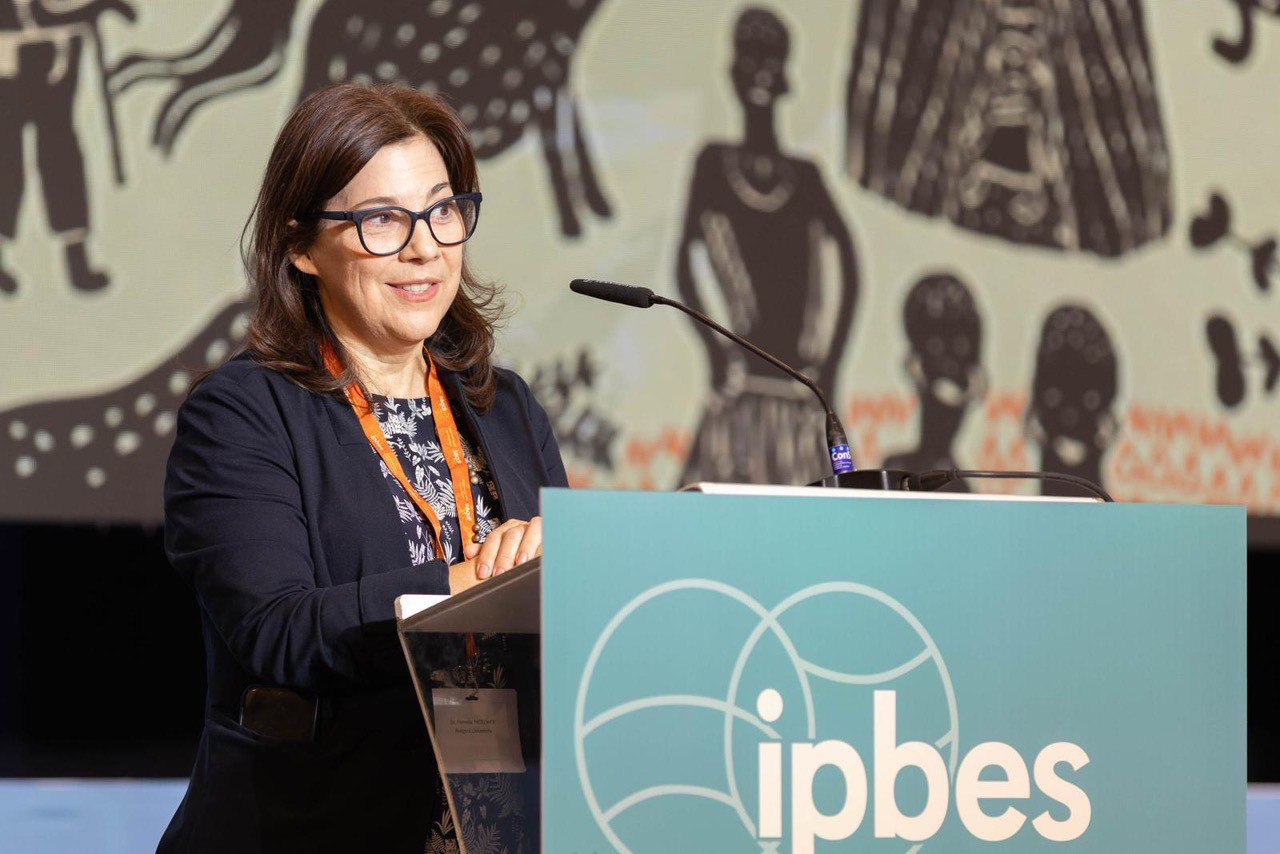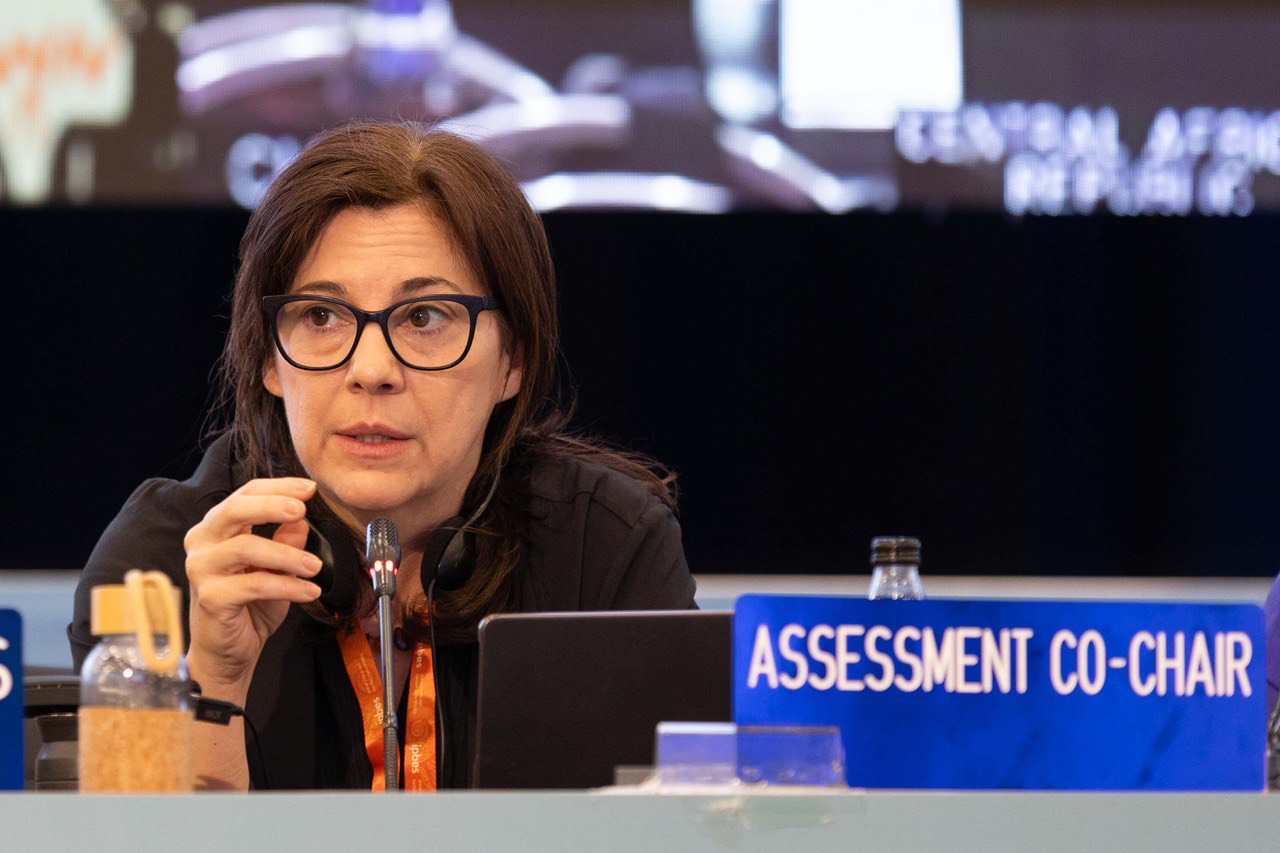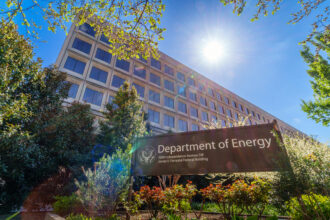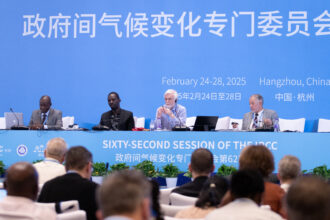In late July, the U.S. Department of Energy released a 141-page review of the impact of greenhouse gas emissions on the United States. The report questioned formative peer-reviewed work on climate change.
Energy Secretary Chris Wright, in the forward, said the media “distorts” the science supporting climate change. “Climate change is real, and it deserves attention,” he wrote. “But it is not the greatest threat facing humanity. That distinction belongs to global energy poverty.”
Days after the report’s release, the Environmental Protection Agency formally proposed rescinding the 2009 Greenhouse Gas Endangerment Finding, relieving vehicle and engine manufacturers of obligations to measure or control or report emissions. Critics believe the fallout could undermine and unravel decades of work and science-informed policymaking.
When she first read the document, Pamela McElwee, a researcher, author and professor of human ecology at Rutgers University, thought it needed to be refuted. Most of it, she said, was incorrect, or deeply biased and misleading. As it turns out, a plan was already in motion.
Andrew Dessler, a professor of atmospheric sciences at Texas A&M University, felt the same way and had begun organizing an effort to challenge the DOE paper with a coalition of over 85 scientists, which came to include McElwee. They connected through social media and signed up on Google Docs.
Together, they deconstructed the report and responded to the DOE last week in a 459-page document of their own, calling the report fundamentally incorrect. The rebuttal says the DOE conclusions were reached using cherry-picked information and misquoting peer-reviewed research.
“There were missing citations. There were incorrect citations,” McElwee said. “It’s just flawed as a scientific document. To rebut that seems very important, particularly because it’s going to be so leaned upon in terms of this policy change that EPA is trying to do, and to have such a major policy change based on such a flawed process, seems very wrong to me.”
McElwee, 54, grew up in Kansas and studied political science at the University of Kansas before earning her master’s in forestry and plant sciences at Oxford and her doctorate in forestry, environmental sciences and anthropology at Yale. She’s been teaching classes such as Nature Society Theory and Human Dimensions of Environmental Change at Rutgers for nearly 12 years.
She loves taking students out to meetings at the United Nations to show them what global policy discussions can really look like. Outside of that, McElwee is a hiker who spends time in nature with her 10-year-old daughter.
Before her tenure at Rutgers, McElwee researched ecology and climate policy from an anthropological standpoint. Much of her fieldwork has taken her to Southeast Asia, where she has documented the intersection of conservation, cultural values and policy outcomes. She has published more than 90 papers, examining how biodiversity and human communities adapt—or fail to adapt—to the pressures of climate change.
The DOE report, she said in an interview, basically says nothing about adaptation, a core focus of her work. It provides a few examples, like levees that were rebuilt to withstand stronger storms after Hurricane Katrina. But what it doesn’t say, she said, is how adaptation could play out for the rest of the country and what real, fundamental adaptation could and must look like.
“It is not interested in the adaptation question, which I think is huge and important and just basically completely ignored,” McElwee said, given the impacts of climate change on sea level rise, wildfires, heat and drought, flooding and increased rainfall and other extreme weather events.
In the 1990s, McElwee served as a legislative aide to then-senator Al Gore and later in the Clinton White House as an advisor on environmental policy. She’s also served as a co-author for the United Nations Intergovernmental Panel on Climate Change special report on Climate Change and Land in 2019 and the Workshop Report on Climate Change and Biodiversity in 2021. Her work weaves science with policy.

In her eyes, the Trump administration’s underestimation of greenhouse gas impacts on climate change is not surprising, given the administration’s similar approach to denying vaccines’ role in public health. But, she said, the agenda-driven attack on science rejects the possibility of real political discussion.
Why not engage key players looking to use market-based solutions to environmental and climate policies, let the market come up with new technologies or let the market come up with funding, she asked.
“If you’re worried about the costs of doing something about climate change on the U.S. economy,” she said, “frame it like that. But don’t say we shouldn’t do anything.”
The Department of Energy did not respond to a request for comment.
Because of what she sees as the administration’s anti-science biases, McElwee said she and other scientists are left having to repeatedly defend the argument and the science around whether or not climate change is a pressing issue.
“I understand why people do it,” she said. “Because if you can confuse folks, if they don’t understand if climate change is really happening or what’s driving it, then you’ve removed the pressure to have that policy discussion.”
This story is funded by readers like you.
Our nonprofit newsroom provides award-winning climate coverage free of charge and advertising. We rely on donations from readers like you to keep going. Please donate now to support our work.
Donate NowDessler, who discusses these matters through his blog on Substack, likened the administration’s approach to that of the tobacco industry, as described in the 2010 book Merchants of Doubt. In it, the authors explain how Big Tobacco sowed enough doubt in the science that showed the harms of cigarettes to continue operating without much regulation.
“The DOE report is designed to do exactly the same thing: muddy the waters enough that the government can claim there’s too much uncertainty to regulate carbon dioxide,” Dessler wrote.
That faulty science, McElwee said, is what she and the other scientists are advocating against.
There’s plenty of it in the DOE report, she said. First, it’s only authored by five scientists, one of whom, Judith Curry, has been criticized in scientific circles for being a climate contrarian by emphasizing uncertainties in climate science. Most of the authors are not directly involved with the department.
Instead, McElwee believes, they were likely picked for their contrarianism and denialist viewpoints on climate change. The paper also wasn’t subject to peer review and included many citation errors—some did not link to the correct documents and others linked to documents that were missing entirely.
On page 375 of the rebuttal, McElwee points out one such error: DOE cited a 2023 paper written by two scientists, supposedly about “mortality reduction due to forecasting improvements,” that was actually referring a different paper they wrote in 2014 that furthers the rebuttal’s argument that DOE underestimated the economic costs of climate change.
McElwee is concerned the administration will use this error-filled document to justify the rescission of the endangerment finding, in which the agency concluded that greenhouse gas emissions are air pollutants that threaten public health and welfare. It forms the basis for the agency’s ability to combat climate change and regulate those emissions under the Clean Air Act.
“I don’t know that this rebuttal report will slow that down at all,” she said, “but if we hadn’t done it, then it definitely would go ahead.”
McElwee and her colleagues have submitted their review to the DOE comment portal. Curry has since responded in her own blog post, claiming that the authors are “whining and posturing,” and that their response provides “very little in the way of actual serious and constructive criticism.”
McElwee strongly disagrees. Speaking up like this may not change anything, McElwee said. But there’s strength in numbers. Now, she said, it’s up to her and others to continue what they’ve been doing:
“Educating our students and being in the public sphere,” she said. ”This was one thing that I stepped into, and I’m sure there’ll be more. That’s just the nature of the place we’re in right now.”
About This Story
Perhaps you noticed: This story, like all the news we publish, is free to read. That’s because Inside Climate News is a 501c3 nonprofit organization. We do not charge a subscription fee, lock our news behind a paywall, or clutter our website with ads. We make our news on climate and the environment freely available to you and anyone who wants it.
That’s not all. We also share our news for free with scores of other media organizations around the country. Many of them can’t afford to do environmental journalism of their own. We’ve built bureaus from coast to coast to report local stories, collaborate with local newsrooms and co-publish articles so that this vital work is shared as widely as possible.
Two of us launched ICN in 2007. Six years later we earned a Pulitzer Prize for National Reporting, and now we run the oldest and largest dedicated climate newsroom in the nation. We tell the story in all its complexity. We hold polluters accountable. We expose environmental injustice. We debunk misinformation. We scrutinize solutions and inspire action.
Donations from readers like you fund every aspect of what we do. If you don’t already, will you support our ongoing work, our reporting on the biggest crisis facing our planet, and help us reach even more readers in more places?
Please take a moment to make a tax-deductible donation. Every one of them makes a difference.
Thank you,











